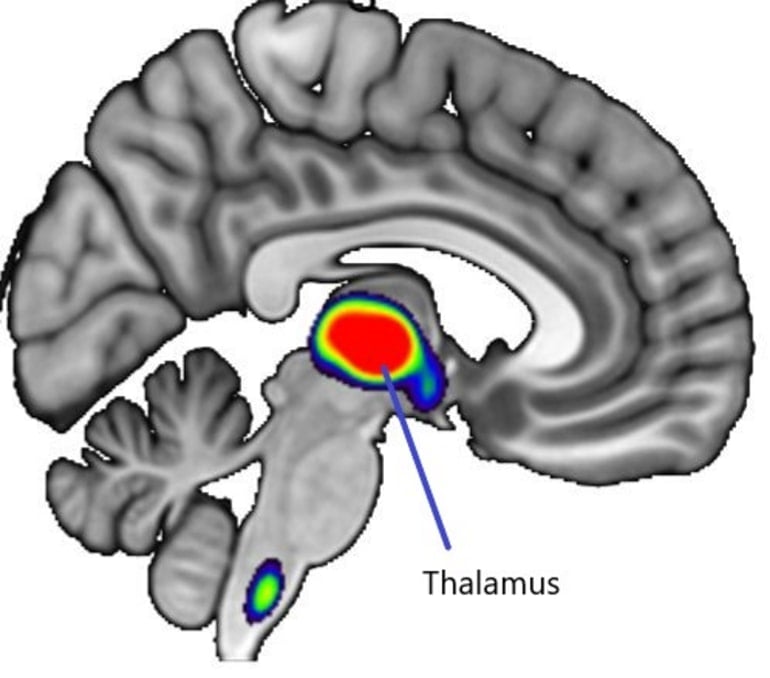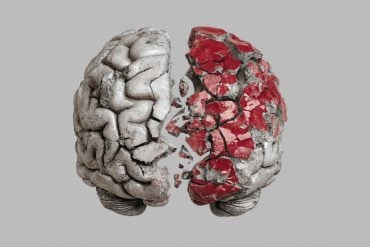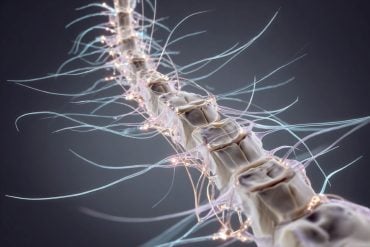Summary: The dose of nicotine from a single cigarette blocks estrogen production in the brain, causing behavioral changes. Findings may shed new light on why quitting smoking may be more difficult for women than men.
Source: European College of Neuropsychopharmacology
A dose of nicotine, equivalent to that found in a single cigarette blocks estrogen production in women’s brains. This may explain several behavioural differences in women who smoke, including why they are more resistant than men to quitting smoking.
This work is presented for the first time at the ECNP Congress in Vienna.
Lead researcher, Associate Professor Erika Comasco (Uppsala University, Sweden) said:
“For the first time, we can see that nicotine works to shuts down the estrogen production mechanism in the brain of women.
“We were surprised to see that this effect could be seen even with a single dose of nicotine, equivalent to just one cigarette, showing how powerful the effects of smoking are on a woman’s brain. This is a newly-discovered effect, and it’s still preliminary work.
“We’re still not sure what the behavioural or cognitive outcomes are; only that nicotine acts on this area of the brain, however we note that the affected brain system is a target for addictive drugs, such as nicotine”.
The effect has been shown in the thalamus, which is part of the limbic system in the brain. This system is involved in behavioural and emotional responses.
The researchers, from Uppsala University in Sweden, worked with a group of ten healthy female volunteers.
The women were given a commercially available nicotine dose intranasally, and at the same time were injected with a radioactive tracer attached to a molecule which binds to the enzyme aromatase: aromatase, also known as estrogen synthase, is the enzyme responsible for the production of estrogen. MRI and PET brain scans enabled the researchers to visualise both the quantity of aromatase, and where it was located in the brain.
The researchers found that a single dose moderately reduced the amount of aromatase in the brain.
It has been known for some time that women and men respond differently to nicotine, with women being more resistant to nicotine replacement therapy, and showing a greater tendency than men to relapse when trying to quit smoking.
However, the biological basis for these differences is not understood. This is the first time that this inhibitory effect on aromatase production has been shown in humans. The effect on men was not studied.
Professor Comasco continued “This discovery leads us to believe that nicotine’s effect on estrogen production has a significant impact on the brain, but perhaps also on other functions, such as the reproductive system – we don’t know that yet. There are significant differences in the way men and women react to smoking.

“Women seem to be more resistant to nicotine replacement therapy, they experience more relapses, show greater vulnerability for heritability of smoking, and are at greater risk of developing primary smoking-related illnesses, such as lung cancer and heart attacks. We need now to understand if this action of nicotine on the hormonal system is involved in any of these reactions.
Of course this is a comparatively small group of women, we need a larger sample to confirm these findings. Nevertheless, the message is that nicotine has various effects on the brain, including on the production of sex hormones such as estrogen”.
Commenting, Professor Wim van den Brink, Emeritus Professor of Psychiatry and Addiction at the Academic Medical Center, University of Amsterdam said:
“This is indeed an important first finding. Smoking has many adverse effects in men and in women, but this particular effect of nicotine on the reduction of estrogen production in woman was not known before.
“It should be noted, however, that tobacco addiction is a complex disorder with many contributing factors. It’s unlikely that this specific effect of nicotine on the thalamus (and the production of estrogen) explains all the observed differences in the development, treatment and outcomes between male and female smokers.
“It is still a long way from a nicotine induced reduction in estrogen production to a reduced risk of nicotine addiction and negative effects of treatment and relapse in female cigarette smokers, but this work merits further investigation”.
About this nicotine research news
Author: Tom Parkhill
Source: European College of Neuropsychopharmacology
Contact: Tom Parkhill – European College of Neuropsychopharmacology
Image: The image is credited to Jana Immenschuh
Original Research: The findings were presented at the 35th Congress of the European College of Neuropsychopharmacology (ECNP)






